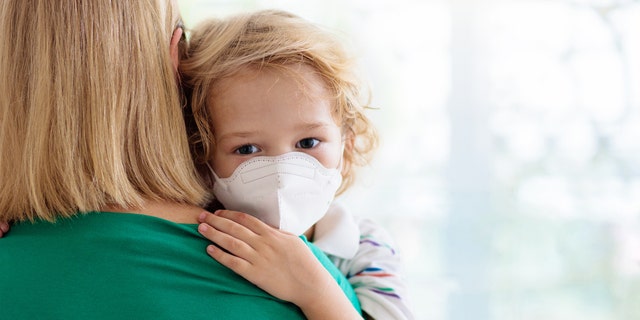
Feinstein’s best days are behind her
Dems push out one of their own… CNN’s obsession with George Santos… Possible recall of New Orleans Mayor Cantrell… Raymond Arroyo has it all on ‘The Ingraham Angle’ Seen and Unseen.
The oldest sitting member of the Senate, Sen. Dianne Feinstein, D-Calif., is recovering at home after a recent hospitalization secondary to the viral infection called shingles, according to multiple reports.
“I want to thank everyone for the well wishes and the hospital staff for providing excellent care,” the 89-year-old senator tweeted on March 7.
“I’m recovering at home now while I continue receiving treatment and look forward to returning to the Senate as soon as possible.”
CALIFORNIA SENATOR FEINSTEIN HOSPITALIZED IN SAN FRANCISCO
Roughly one out of every three people in the United States will develop shingles in their lifetime, according to the Centers for Disease Control and Prevention (CDC).
People generally only get shingles once in their lives, although it is possible to get it more than once.

Sen. Dianne Feinstein, D-Calif., said a few days ago after a recent hospitalization, “I’m recovering at home now while I continue receiving treatment and look forward to returning to the Senate as soon as possible.” (Tom Williams/CQ-Roll Call, Inc via Getty Images)
The risk of the infection increases as people get older, with some 1 million getting the disease each year in the U.S, the agency added.
Fox Digital News discussed the affliction with an infectious disease specialist in order to share more information about the medical condition.
What is shingles?
Shingles is a rash caused by a virus known as varicella zoster virus. It’s the same virus that causes chickenpox, according to the CDC.
After someone gets chickenpox, the virus stays “dormant” in the body, hiding out in the nervous system.
More than 99% of Americans born before 1980 have had chickenpox, even if they didn’t know they had it, per the CDC.
LOWER RESPIRATORY INFECTIONS WHEN YOUNG COULD BE LINKED TO EARLIER ADULT DEATHS: STUDY
After someone gets chickenpox, the virus stays “dormant” in the body, hiding out in the nervous system.

“Chickenpox occurs when you first acquire the virus — historically, it was one of the childhood diseases that almost everyone had,” Dr. Anna Wald, an infectious diseases specialist and professor, told Fox News Digital. (iStock)
However, it can reactivate years later as the person ages or the immune system gets depressed, causing a painful rash known as shingles, the CDC also said.
“Chickenpox occurs when you first acquire the virus — historically, it was one of the childhood diseases that almost everyone had,” Dr. Anna Wald, an infectious diseases specialist and professor at the University of Washington School of Medicine in Seattle, told Fox News Digital.
“When people are older, or immunocompromised, the virus can become active again, causing shingles or zoster.”
“Even after the illness and the rash resolves, the virus remains in the body,” she said.
“When people are older, or immunocompromised, the virus can become active again, causing shingles or zoster.”
How the virus is transmitted
If a person has shingles, he or she can spread the virus to other people who have never had chickenpox or never been vaccinated for chickenpox.
When these people touch the fluid blisters from the rash, they can later become infected, according to the CDC.
MILLENNIALS ARE RACKING UP MORE CHRONIC HEALTH CONDITIONS COMPARED TO OTHER GENERATIONS: STUDY
“If they get infected, they will develop chickenpox, not shingles,” the CDC notes on its website.
But these people may develop shingles later in life.

“The most common complication of shingles is long-term nerve pain called postherpetic neuralgia (PHN),” the CDC says on its website. (iStock)
Those who have active shingles can reduce their risk of spreading the virus by covering their rash.
It usually takes about seven to 10 days for the rash to crust over, at which time people are no longer infectious, per the CDC.
Signs and symptoms
The shingles rash is classically on one side of the face or body, which often can be diagnosed by its characteristic appearance of lesions that are fluid-filled on a red base along a nerve distribution, per the CDC.
“Typical signs and symptoms of shingles is a rash on part of the body, most often the trunk and almost always one-sided,” Wald noted.
“The rash tends to be painful, with pain often persisting for a long time after the rash resolves.”
Pain or tingling often precedes the rash, which usually occurs several days before the rash appears.
“The rash tends to be painful, with pain often persisting for a long time after the rash resolves.”
Some complications
“The most common complication of shingles is long-term nerve pain called postherpetic neuralgia (PHN),” the CDC says on its website.
The rash can also affect the eye or brain and sometimes also other internal organs, Wald cautioned.

Since shingles is caused by a virus, medications directed against the virus — known as antivirals, such as acyclovir and valacyclovir — are prescribed to decrease the duration and severity of the illness, according to the CDC. (iStock)
These complications include pneumonia, hearing problems, encephalitis (brain inflammation) and Ramsay Hunt Syndrome — which affected pop sensation Justin Bieber last year.
The syndrome affects the facial nerve near one of the ears, according to Mayo Clinic.
It is known by its classic presentation of three signs: paralysis on one side of the face; pain in the ear on the same side of facial paralysis; and vesicles, or fluid-filled blisters, in the outer part of the ear, according to previous research.
Treatment and prevention
Since shingles is caused by a virus, medications directed against the virus — known as antivirals, such as acyclovir and valacyclovir — are prescribed to decrease the duration and severity of the illness, according to the CDC.
But the medications are most effective if they’re begun as soon as the rash appears.
CLICK HERE TO SIGN UP FOR OUR HEALTH NEWSLETTER
Prevention is key with vaccination to prevent chickenpox and shingles.
“Effective vaccines are available to prevent both chickenpox — given in childhood, 2 doses; and for shingles — given to adults over the age of 50, also 2 doses,” Wald noted.
CLICK HERE TO GET THE FOX NEWS APP
“Some people will develop shingles despite the vaccination, but it is usually milder and much less common.”

 Latest Breaking News Online News Portal
Latest Breaking News Online News Portal




